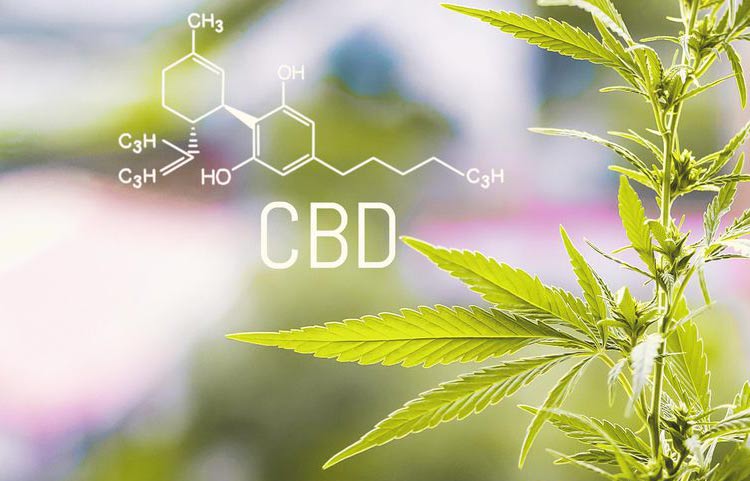Table of Contents [show]
CBD-infused products became a popular solution to health issues such as seizures, anxiety, depression, or chronic pain. However, you might be wondering how they interact with over-the-counter and prescription medications. Are they safe? Can you use them with other supplements and herbal remedies? As CBD is a biologically active compound, answering these questions is essential if you want to avoid severe consequences. Luckily, while CBD is a relatively new substance, there are some studies that can help us better understand how it can interact with medications.
If you would like to learn more about CBD and its possible side effects, you came to the right place. Here is what you need to know about it and how it might interact with other medications.
How CBD Works
Before we talk about how CBD interacts with other medications, it would be helpful to explain how it works. CBD is a compound that comes from hemp and cannabis plants and comes in different forms, including oil, green apple CBD gummies, to vape cartridges. It belongs to the chemical family called cannabinoids. There are many factors that can affect the quality of CDB. If you want to use products from your own plant, you need to make sure you are using the best seed banks you can find. Only then, you can be sure that the product is of the highest quality.
This particular chemical has many properties, and among them is the ability to interact with our endocannabinoid system (ECS). This network is responsible for the regulation of several processes in our body.
In fact, the ECS is the main reason why CBD has so many biological effects. In addition to interacting with this system, CBD also interacts with receptors in our body. This allows it to modulate several functions, such as pain, inflammation, mood, and appetite. However, CBD does not bind directly to the cannabinoid receptors. Instead, it binds to some of the serotonin receptors in our brain. This is why it can have an effect on our mood and also why it may interact with some medications.
Specifically, the serotonin 5-HT1A receptor might be the main one that interacts with CBD. Also, it seems that CBD does not directly alter any of these receptors. It acts more like a modulator, which means that it may only have slight effects on them. However, more research is needed before we can make any more concrete conclusions.
Medicines That Interact With CBD
Since CBD interacts with some of the serotonin receptors in our brain, there are some medications that might interact with it as well. But what kind of medications? And how severe are these interactions? The following list provides a few examples of medications that may interact with CBD:
Antidepressants – Some antidepressants seem to interact with CBD because they have similar serotonin receptor activity. These interactions may result in changes in both drugs’ efficacy or result in side effects. One study reported that CBD increased the antidepressant effect of certain antidepressants. However, other research shows that CBD can decrease the effectiveness of certain antidepressants. To be sure you avoid these interactions with your medication, it is best to consult your doctor first.
Some antidepressants, such as SSRIs (selective serotonin reuptake inhibitors), are known to interact with CBD. In fact, this interaction is so strong that taking CBD with some antidepressants might be not only ineffective but also dangerous. If you are taking any of these medications, it would be a good idea to talk to your doctor before you start using CBD.
Antipsychotic Medication
Antipsychotics are often used to treat schizophrenia and other mental conditions. However, they can also cause various side effects, such as drowsiness and dry mouth. Since CBD also has sedative effects, it can increase the risk of developing side effects when used with antipsychotics. If you use antipsychotics and want to use CBD-infused products, you should consult your doctor first and monitor any potential side effects.
Stimulants
Similarly to antipsychotics and antidepressants, stimulants may interact with CBD because they have similar serotonin receptor activities. Stimulants are often used to treat ADHD and asthma attacks. However, they can also cause other side effects, such as anxiety and insomnia. If you use a stimulant medication and consider using CBD-infused products, talk to your doctor first. He or she will help you evaluate whether or not these products are safe for you to use while taking stimulants.
Opioid Medication
Opioids are one of the most prescribed types of medications in the United States today. They are used for treating moderate to severe pain but also come with side effects such as vomiting and nausea. Some studies show that using CBD together with opioids can reduce these side effects significantly. However, more research is needed before we can make any more conclusions about this interaction between opioids and CBD-infused products.
Anti-anxiety Medication
Anti-anxiety medications include benzodiazepines (Xanax), barbiturates (Phenobarbital), and other similar drugs (Valium).
Other Medication
There are various other medications that may interact with CBD. For example, anticonvulsants and antihypertensives may have an interaction with CBD. However, the interactions between these medications and CBD are generally mild. Also, they can usually be managed by adjusting your dosage or by switching to a different medication. If you use any of these medications, talk to your doctor before using CBD-infused products.
Again, it is important to understand that more research is needed before we can make any final conclusions about how CBD interacts with other medications. So, if you are taking any medication and considering using CBD-infused products, talk to your doctor first. He or she will help you evaluate whether or not these products are safe for you to use while taking other medications.
CBD Side Effects
In addition to interacting with certain medications, CBD might also cause some side effects. As was previously mentioned, CBD interacts directly with serotonin receptors in our brain. Although it may only have slight effects on our serotonin receptors, this can still lead to some mild side effects.
The most common side effect associated with CBD is drowsiness. Some people who consume too much CBD may experience drowsiness. If this is the case, you should lower your intake until you can determine how much CBD is safe for you to use.
Some research also suggests that CBD can decrease blood pressure and heart rate. In fact, one study showed that a single dose of 600 mg of CBD can result in a 15 percent drop in blood pressure. This decrease may be undesirable for people who already have low blood pressure or heart problems. So, if you are taking any medications and considering using CBD-infused products, it’s best to consult your doctor first.
Medication and Supplements
CBD interacts with some medications and supplements because it has similar serotonin receptor activities as them. However, the interactions are generally mild and can usually be managed by adjusting your dosage or by switching to a different medication.
If you are taking any medication and considering using CBD-infused products, talk to your doctor first. He or she will help you evaluate whether or not these products are safe for you to use while taking other medications. You can also find out more about the possible side effects of CBD-infused products by reading our article What Are the Benefits of CBD?
Final Thoughts
As you can see, there are a few medications that can interact with CBD. Interactions are not very severe and can be avoided. When using CBD-infused products according to the instructions of your doctor. If you are looking for an alternative treatment for your health condition, CBD-infused products might be a great option. However, if you decide to use them, you should first talk to your doctor about how they can affect your medication. If you have any questions about this article or would like to learn more about CBD-infused products, leave a comment below. We’ll gladly help you out!





